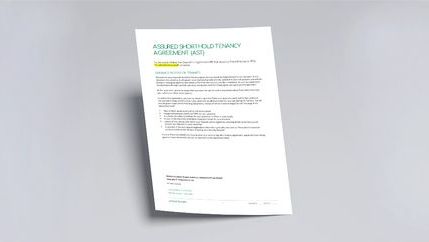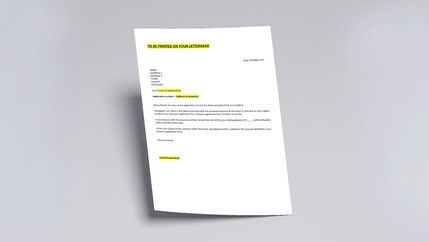Assured shorthold tenancy agreements (ASTs)
Our ASTs are compliant with the Tenant Fees Act and we offer alternative versions depending on the deposit scheme you are registered with alongside a no deposit option and Deed of Guarantee.
Fee templates
The Consumer Rights Act 2015 made it a legal requirement for letting agents in England to display details of all fees and charges on websites and in offices. These templates support members who have Propertymark Client Money Protection (CMP) to comply with the legislation.
Holding Deposit template letters
Save time by applying our templates to your letterhead to communicate to a new or potential tenant when a Holding Deposit needs to be refunded, forfeited or transferred.
Fact sheets: Tenant Fees Act
The Tenant Fees Act came into force on 1 June 2019, to help our members comply with this complex piece of legislation we created a series of facts sheets covering various aspects of the ban.
Tenant Fees Act FAQs
Agents from all over the country have been asking us about how the Tenant Fees Act will affect them and we've answered 71 of the most frequently asked questions.
Tenant Fees Act 2019 — What to expect from my letting agent
This digital tenant guide is full of information about the Tenant Fees Act 2019. Download a PDF copy to give to potential and existing tenants.
Tenant Fees Act 2019 — A Guide for Landlords
This digital landlord guide is full of information about the Tenant Fees Act 2019. Add your logo and branch details to the leaflet before giving it to your landlords to ensure they understand what the ban means for them.
Other resources:
Fact sheet: Renting Homes (Fees etc.) (Wales) Act 2019
The Act came into force on 1 September 2019 meaning letting agents and landlords can only charge fees relating to rent, security deposits, holding deposits, or when a tenant breaches a contract.
Renting Homes (Fees etc.) (Wales) Act 2019 FAQs
Agents from all over the country have been asking us about how the Renting Homes (Fees etc.) (Wales) Act will affect them so we've answered 67 of the most frequently asked questions.
Renting Homes (Fees etc.) (Wales) Act 2019 — What to expect from my letting agent
This digital tenant guide is full of information about the Renting Homes (Fees etc.) (Wales) Act 2019. It explains what fees a letting agent can legally charge, the rules on deposits and default fees. Download a PDF copy to give to potential and existing tenants.
Renting Homes (Fees etc.) (Wales) Act 2019 — A Guide for Landlords
This digital landlord guide is full of information about the Renting Homes (Fees etc.) (Wales) Act 2019. Add your logo and branch details to the leaflet before giving it to your landlords to ensure they understand what the ban means for them.
Other resources:














